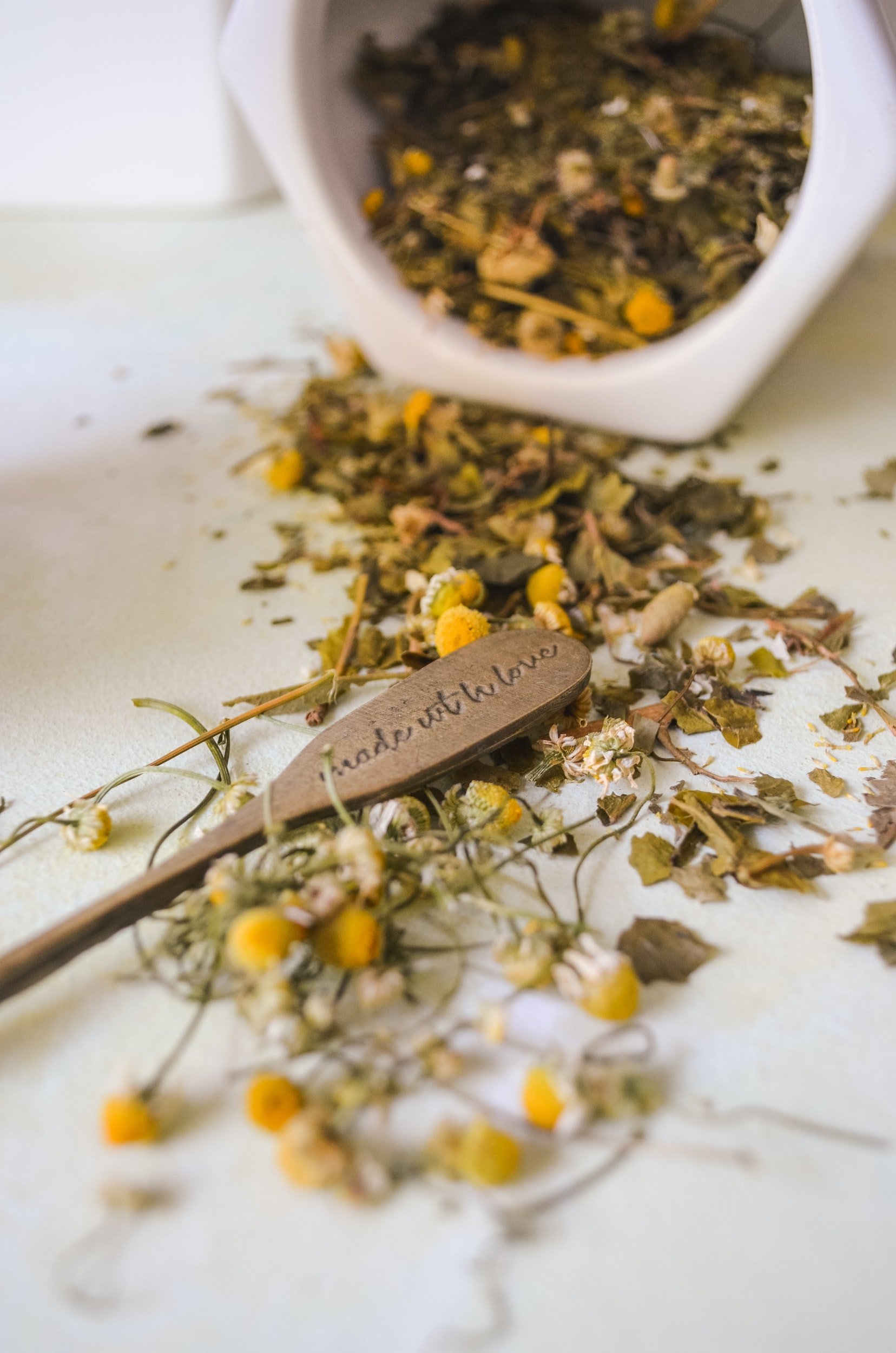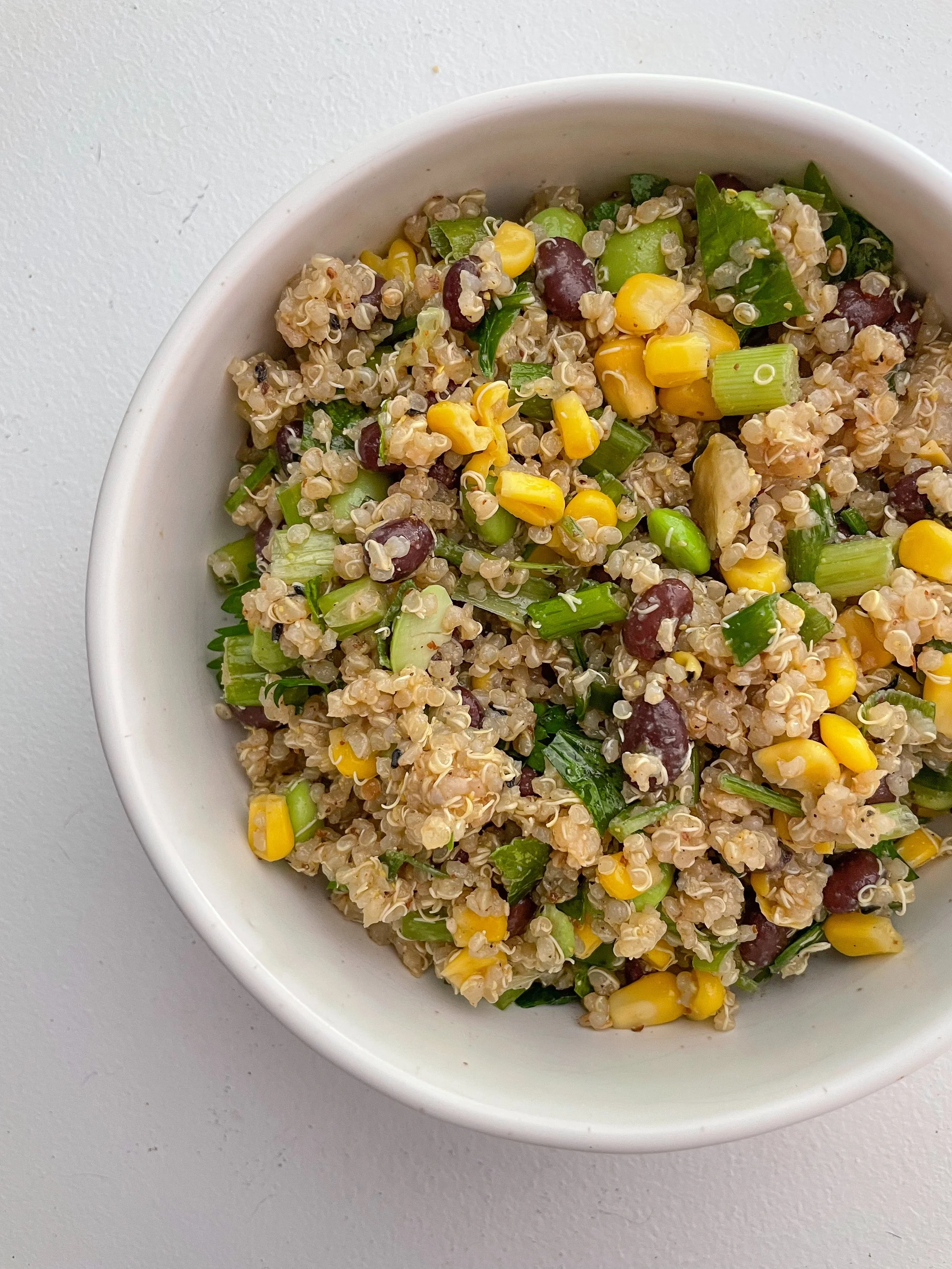6 Gut Health Tips from a Holistic Nutritionist to Ease into 2024
I was interviewed for CKNW/Global radio about my 5 tips to transition into the new year. I really focused on adding more into the diet, versus restrictive unsustainable ways of eating. PS I don’t find a plant-based diet limiting, I have more variety now than before.
Tip 1: Ditch the Diet.
It’s January and people often start some restrictive way of eating. Instead, make it a lifestyle. Something that’s truly sustainable and you enjoy. With my clients, I want to promote daily habits over stressing over one meal or an ingredient that’s rarely eaten. Plainly stated, just eat more fibre, which is found in high concentrations in vegetables and grains. The daily goal is set to 25g for women and 38g for men, conservative goal that most aren’t hitting in Canada. Try to the balanced plate method of half vegetables (or fruit in the am) 1/4 starchy carb, 1/4 protein and add healthy fats. This will ensure you’re getting each macro and keeping those blood sugar levels stable by slowing digestion keeping you satiated.
Tip 2: Eat Your Beans!
Legumes and lentils are food for our microbiota, they’re prebiotics. Beans are also affordable for the majority of the population, especially when cooked at home. Our gut health directly impacts our physical and mental health. We make neurotransmitters in our gut that can impact anxiety and depression. If our gut isn’t functioning properly then your serotonin and dopamine levels shift.
Note: there’s no need to worry about lectin because they’re only present in raw beans. We don’t eat beans raw …. I’m still in shock there is a debate over the health of beans. I think it’s all to create a debate and get more attention. Boring doesn’t sell, sadly.
Fermented Foods
It should feel good and if it doesn’t, you may have high histamines. Hop over to my services sections to get to the root cause of your gut imbalances.
Tip 3: Ferments for The Win
Eat fermented foods daily, that’s my goal anyways.
My favourites:
Sauerkraut
Kimchi
Miso paste
Tempeh, however it’s cooked so we lose the majority of benefits
Pickles (refrigerated ones only)
Why eat more ferments? The good bacteria helps crowd out bad bacteria, reduce inflammation in the gut, digest food, make nutrients and support the immune system. All really big wins. What about the sodium? If you’re eating a majority whole foods diet than don’t worry. I’d rather you skip out on tons of processed foods and reap the benefits of additional good bacteria and vegetables in your diet.
Always choose refrigerated without vinegar added.
Tip 4: More Herbs
An approachable way to add lots more nutrition and health benefits. Fresh culinary are loaded with micronutrients. Cilantro helps with heavy metals, parsley with bloating during your menstrual cycle, rosemary for focus, peppermint for gas. Plants are powerful and today we are so quick to dismiss their healing powers.
I suggest including dried herbs in tea form with all my private practice clients too. Some examples of common infusions I recommend:
Chamomile is antispasmodic, antiviral, mild sedative.
Passion flower and valerian are great for sleep as sedatives and also supports anxious feelings.
Nettle has high mineral content including iron, great for postpartum mamas.
Skullcap for overwhelm anxiety.
St. John’s wort depression.
Marshmallow root for soothing stomach lining, H. pylori and stomach ulcers.
Always work with a practitioner when including teas and tinctures as these don’t work for everyone, especially if on prescription medications.
Chamomile
Tastes delicious, relaxing before bed, good for bloating and gas, supports stomach ulcers
Tip 5: It’s Bigger than Food
You may be shocked to hear this from a nutritionist, but healing isn’t just about what you eat. The mind body spirit component can’t be ignored if someone wants to be at peace and heal. Old trauma and living in fight or flight impacts the nervous system.
Gargling, singing, hold and cold exposure all activate the vagus nerve and I have an entire blog post on why this helps!
Tip 6: Focus on mineral intake from food
I see a lot of clients who need support with their mineral levels. Some minerals are really low and others aren’t balanced. Magnesium and calcium impact each other, just like sodium and potassium do. If your calcium intake is very high, this will lower your magnesium stores. I love using hair tissue mineral analysis (HTMA) for accessing part of the reason for client’s bloating, PMS, constipation or fatigue. See this blog post for a peep into how HTMA call tell us more about your thyroid health, adrenal glands, vitality, nervous system and hormone ratio.
There is a lot more I could include and it was hard to pair it down. Focus on eating a ton of plants as the research shows us over and over this helps reduce cardiovascular incidents, cancer risk and diabetes.
Want to work together on your health? Fill out an application under services.
Jordan, gut health nutritionist
































